Strawberries are a favorite fruit of many and are even sweeter when grown in your own backyard. They are easy to grow and will yield numerous fresh berries to enjoy.
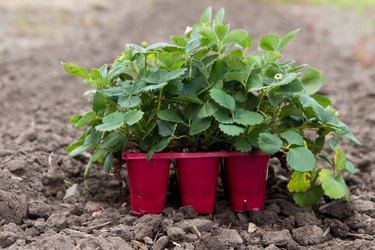
There are three main types of strawberries:
Video of the Day
Video of the Day
- June-bearing strawberries flower and fruit during the spring and create new plants from "runners" during the long days of summer.
- Day-neutral strawberries flower and fruit throughout the growing season. They often produce less berries that are smaller than other varieties.
- Everbearing strawberries flower and fruit during the late days of spring, long days of summer and into early fall.
Plant the strawberry variety for your area's growing season. Check with your local gardening center to see what works best where you live. When you are ready to plant, follow these simple steps to ensure fast growth. By next year, you will be picking your own strawberries!
Things You'll Need
Freshly tilled soil
Garden spade
Strawberry plants
Compost
Water
Step 1
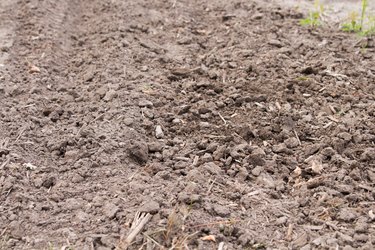
Pick a bed for the strawberries that is in full sun. Strawberries like full sun with moist, well-drained soil. Prepare the planting area by tilling your soil. Tilled soil is looser and enables the roots of new plants to grow with ease.
Step 2
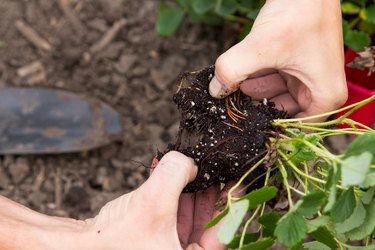
Break apart the roots of the individual strawberry plants to promote growth.
Step 3
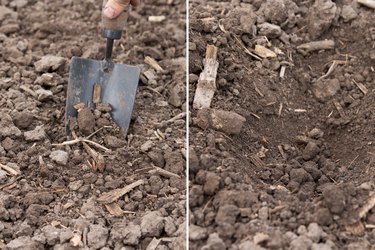
Dig a hole and place in the strawberry plant. The hole should be larger than the root ball so the roots of the plant are able to fully fit in the hole. Lightly pack the soil around the roots.
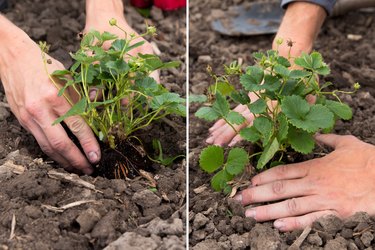
Tip
Plants should be spaced 20 inches apart. Depending on how many plants you are planting, rows should be spaced four feet apart. Starting in the first year, the plants will spread and create new daughter plants from the runners on established plants. Allow the plants to expand and grow.
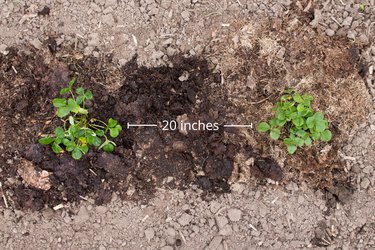
Step 4
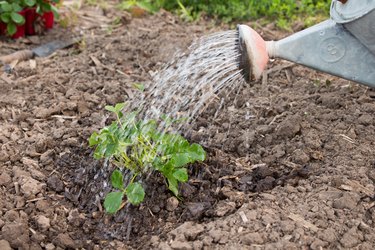
Water as needed. Strawberries like moist soil so it's important to water frequently, especially in dry climates.
Step 5
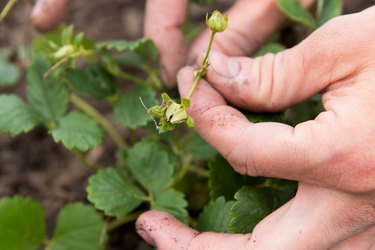
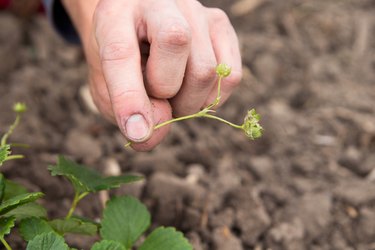
Pick off the flowers and small fruits after planting. Removing these ensures the plants devote all their energy into establishing roots. By doing this, you increase your crop the year after planting.
Step 6
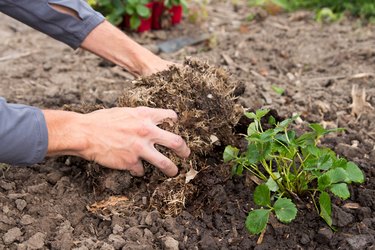
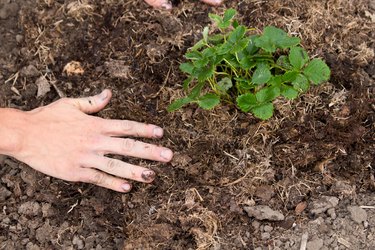
Cover the soil around the plants with compost. Composting the plants helps keep weeds that can suffocate the plants at bay. It also keeps the plants moist and adds vital nutrients to the soil.
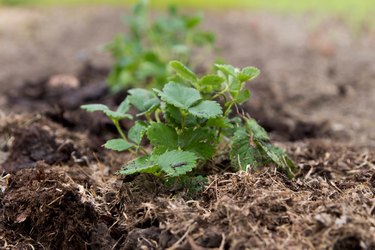
Next year, you will be enjoying fresh strawberries right from your garden!